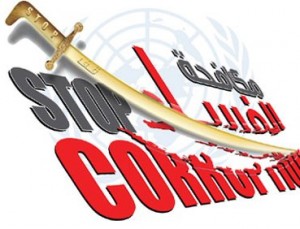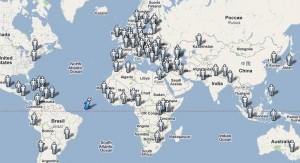In December 2006, the first Conference of States Parties agreed that “effective and efficient review of the implementation of the UN Convention against Corruption (…) is of paramount importance and urgent.”
When governments met again in January 2008 in Bali, no progress was achieved.
This year in September, as part of its response to the persistent economic crisis, the G20 called for the adoption of an effective, transparent and inclusive review mechanism for the UN Convention.
Now, we are at five days to Doha. More than 100 countries will arrive in Qatar to go into the third round of negotiations from 9-13 November.

To be that successful in stopping corruption, an effective review mechanism is needed
Until now, negotiations seem to have reached a deadlock. A small group of countries is blocking proposals for an effective mechanism. In five days, we will know if the 141 governments that have ratified the most comprehensive global legal framework for combating corruption, the UN Convention against Corruption, will finally be able to agree and approve on an effective, transparent and inclusive review mechanism. Or if systemic corruption will continue to punish the world’s most vulnerable.
The UN Convention addresses a wide range of corrupt activity including bribery, embezzlement of public funds, money-laundering and obstruction of justice. Systems for recovering public assets are provided, as well as provisions on how to strengthen public institutions and private entities against corrupt practices, including technical assistance for countries with weak institutions. When appropriate legislation is passed and monitored, the essential building blocks for more accountable states are set. The review mechanism, a procedure by which the UN can check how effectively countries are implementing the UN Convention, is fundamental to ensure this legislation.
The discussions and the decision making process of the Conference concern everyone. They need to be taken from the conference rooms in Doha to the eyes of the world.
To make sure you know and can have a say, Transparency International will be in Doha to monitor the negotiations and create pressure for any mechanism to be public and inclusive to civil society. We will be trying keeping you on the breath of the conference through our social media channels and report to you via twitter, blog and video.
We still need you to increase pressure by signing up for your organisation supporting this statement backing an effective review mechanism until Friday.
And here is where you’ll be able to find more background information:
Official website of the conference
Transparency International’s work on international anti-corruption conventions
UNODC working documents including the programme for the conference, an annotated agenda and all other relevant and official important documents, such as the text being negotiated and the report from the 2008 conference.
Watch this space! I am looking forward to comments, observations and request for civil society and governments present in Doha!
















 Connect with us on Facebook
Connect with us on Facebook Follow us on Twitter
Follow us on Twitter